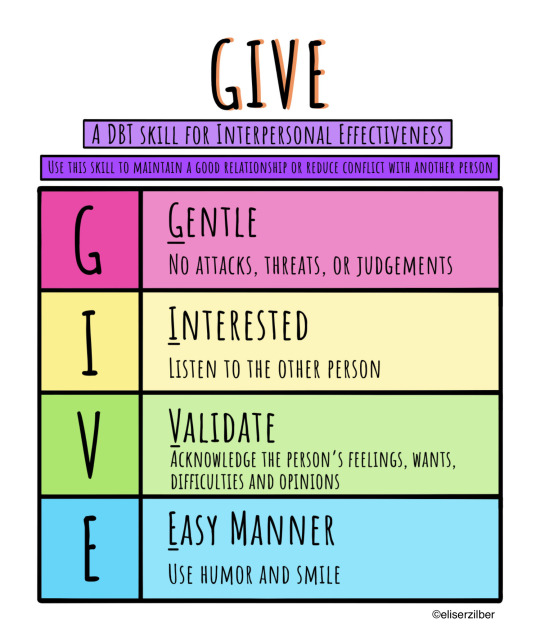#Interpersonal Skills
Explore tagged Tumblr posts
Text
Femme Fatale Guide: Types of Relationships To Help You Thrive In Life
Table of Contents:
Healthy Relationship With Yourself
Peer-To-Peer Relationship
Mentorship Relationship
Goal-Oriented/Accountability-Focused Relationship
Emotionally-Intimate Relationship
Physical/Sexually-Intimate Relationship
Acquaintance Relationships
Second-Degree Relationships
Types of Relationships:
Healthy Relationship With Yourself: Internalize and act with the knowledge that you're worthy of love, care, and nourishment, and have unconditional permission to work towards your goals & dream life. Eat healthfully, drink plenty of water, remain well-rested, move your body daily, maintain proper hygiene/a clean home, invest in your appearance to feel your best, live as a life-long learner, establish healthy habits/routines, get your finances in order, establish and maintain boundaries, make positive self-talk a priority.
Peer-To-Peer Relationship: Aka friendships, which are intended to offer mutual support and joy in life. These friendships thrive on having similar values and interests, which makes these individuals your greatest cheerleaders, advice givers/receivers, and partners in crime to have fun or offer platonic love/emotional support during traditional or difficult seasons in your life. Peer-to-peer relationships should add mutual excitement, encouragement, and emotional nourishment, and provide a soundboard for confidential information exchange, ears to listen without unnecessary or superficial judgment, and solicited advice from someone who has your best interest in mind.
Mentorship Relationship: This could be a boss, teacher, professor, aunt, uncle, or another trusted adult(s) who can guide you based on their more extensive life experience/wisdom. You can have one or several mentors at any life stage and for different purposes. These people should be trustworthy (keep your information confidential unless you state otherwise) and express their advice through the lens of your best interest rather than their own personal desires or biases (at least those left unchecked). Ensure you feel safe around these people, and their presence in your life is a mutually-nourishing relationship that allows you to grow personally, professionally, and relationally.
Goal-Oriented/Accountability-Focused Relationship: A coach, mentorship, or friendship based on the achievement of a particular goal or practice. This type of relationship can manifest as an accountability partner or support group. A therapist can also fulfill this role in your life (but like, a coach, this relationship is a one-way street to offer you emotional support/tools & resources). Some reasons for an accountability-oriented relationship include helping you achieve a certain health/fitness goal, establish better routines, advance in your career, let go of unhealthy habits, patterns, or addictions, better manage your finances, or help you get your other relationships (family, partner, friends, self-talk, boss, co-workers, etc.) in order.
Emotionally-Intimate Relationship: Someone with whom you feel an unwavering emotional closeness and connection. This person can be a partner you're involved with sexually/physically intimate with or not. Asexuality exists, of course. And emotional intimacy can definitely exist in close platonic relationships (like your best friendships) without any romantic or sexual feelings. These relationships are important because they allow you to let your emotional walls down and be your vulnerable, authentic self.
Physical/Sexually-Intimate Relationship: This relationship could be with a romantic partner, FWB, with multiple partners, purely with yourself, or somewhere in between. If you have sexual needs, it's important to find pleasurable ways to satisfy these desires in a way that makes you feel most fulfilled and respected. Let go of any shame you experience when exploring this side of yourself. Experiment and learn what you like/dislike/fantasize about. Use this information to elevate your practice and communication with any partner(s) for a heightened, more enjoyable, and potentially closer emotionally-bonding experience.
Hobby/Interest-Centric Relationship: These relationships can extend from co-workers to your friends in a certain class/the one friend you go on weekly walks with, follow a particular TV show with, exchange beauty tips with, "going out" friends, etc. While these connections aren't vulnerable to the degree of a close friendship/relationship, it is important to have some relationships that are purely based on fun, light-hearted conversations, and mutual hobbies/interests/lifestyles. Having someone to share these mutual experiences with helps you feel more connected to your environment/communities, not feel isolated/lonely when your friends, family, or intimate partner has different hobbies, career aspirations, or daily routines/lifestyle compared to you, and provides a mutual soundboard on issues, insights, and exciting moments in this particular area of your life.
Acquaintance Relationships: Everyone needs those friends, co-workers, or classmates they can just chat with when at a party, a group meeting, dinner, a special occasion, to grab a quick lunch or coffee, etc. These people are fun to be around and allow you to indulge in light, easy conversations to offer temporary social support/fulfillment. These relationships also expand your network for professional opportunities, making new friends, finding dates/a potential partner, interest groups/new hobbies, referral services/classes/spaces, and other contacts that can enrich your life.
Second-Degree Relationships: These are friend-of-a-friend type connections who can be/become your future business partners, romantic/sexual partners, co-workers, investors, hairdressers, realtors, stylists, finance managers, etc. Be ready to reciprocate these offers and be this person in others' lives, too. As your network gets broader and more dynamic, better chances and potential there is to connect with the right people to help you achieve your goals, desires, and overall life satisfaction. Success and efficiency rarely – if ever – exist in isolation.
#relationships#interpersonal relationships#networking#making friends#dating#social interaction#socializing#social connections#interpersonal skills#communication skills#networking opportunities#social networks#life advice#glow up tips#glow up era#level up journey#femme fatale#higher self#it girl#high value woman#high value mindset#success mindset#healthy lifestyle#successhabits#female excellence#dream girl#queen energy#female power#femmefatalevibe
766 notes
·
View notes
Text
GIVE is an interpersonal skill. This is a skill much like FAST that you can use with DEAR MAN. This is a good skill to use even if it isn't a difficult conversation for overall relationship health.
Before using the skills, think about the goals you have. In a lot of cases, for relationship effectiveness you want to preserve the relationship. Whatever the goal is (maybe changing a way you interact if something is upsetting you, or being able to say "no" to the person in a way that they don't feel bad about it), think about it before the interaction.
Be Gentle: Think about how you would want to be treated in a conversation. You likely wouldn't want to be yelled at, attacked, or accused of things. People are more likely to hear you out if they don't feel attacked, and are approached more gently. This doesn't just include tone and what you say but also your body language. Things like rolling your eyes can be upsetting.
Act Interested: Act interested and pay attention to what they're saying even if it's not something you're interested in. Perhaps you don't agree with their version of events, and that's okay, but at least let them talk and hear them out.
Validate: Once you've finished listening, show the other person that you listened and validate what they've said. Try and put yourself in their shoes. Even if you don't agree, try and find something to validate.
For example, maybe they feel really hurt for something out of your control like you cancelling plans because you were sick, in this case you can still validate their feelings and show compassion for them.
Use an Easy Manner: This, to me, feels like it ties a bit into be gentle but "use an easy manner" refers to trying to be "easy going" so the other person may feel relaxed. Smiling, and humour can be helpful. Having a good attitude can help the conversation go more smoothly. It can be hard if the other person feels hurt by something out of your control, but you need to remind yourself that their feelings are valid and allowed. (Also, this never means you should just "take it" if someone is yelling at you or otherwise being aggressive. This assumes both parties are being calm in this situation.)
103 notes
·
View notes
Text
I think a lot of discourse boils down to the idea that there's One Right Answer for everything. But the world, and individual people, are far too complex for that.
For example, a very common pattern of conflict I see is this-
"[blank] was very harmful to me, and set me back a lot." "But [blank] was what finally helped me understand and work through everything."
And instead of approaching the subject with curiosity and compassion, it becomes a fight over which is "correct".
A much more helpful conversation is, "How can we provide fuller information to help people figure out what's best for them?"
#discourse#healthy discourse#interpersonal skills#syscourse#actuallydissociative#applies to a million different things but that's what got me thinking about it today & is the easiest to tag#which is to say that anyone can rb regardless of if they're involved with that one specific thing#i really hope we all start moving towards open discussions and sharing. been thinking a lot about how harmful online discourse#tends to be and how to improve community awareness and move towards more constructive methods of communication#i understand where it comes from and i was in the thick of it as a teenager but i've since grown and have gotten a lot of perspective
56 notes
·
View notes
Text

#relationshipadvice#relationshiphelp#relationship#emotions#men#women#mentalhealthawareness#mental health#mental illness#relationship problems#interpersonal relationships#interpersonal skills#lol#funny#haha#meme#memes#humor#text post
22 notes
·
View notes
Text
Here's an interesting thing to consider going into conversations moving forward: The people who love you might say dumb things they don't really mean, maybe about you, or about things that are happening, if they're scared for your physical safety. Keep that in mind as the political situation escalates. Fear and Love make people stupid. Sometimes people actually do agree with you a lot more than they're comfortable with and they're scared. Try to be understanding and forgiving of things said in panic out of love and denial and exhausted, beaten down pessimism. Sometimes shouting matches can be avoided if you reassure people that you aren't going to be doing anything stupid or dangerous and you will do your best to keep yourself safe.
#us politics#fear#anger#love#rallies#peaceful protest#resistance#activism#democracy#interpersonal skills#I'm not speaking from experience...nooooooooo sireee#this isn't advice directly lifted from life whatsoever lol#american politics#usa#psychology#this applies anywhere shit's hitting the fan really
7 notes
·
View notes
Text









𝙼𝚢 8𝚝𝚑𝚜 𝚀𝚞𝚘𝚝𝚎:
Children and Animals are the only holy on this Planet -x-heesy
𝙳𝚞 𝙻𝚞𝚗𝚍𝚒 𝚊𝚞 𝚅𝚎𝚗𝚍𝚛𝚎𝚍𝚒 𝚋𝚢 𝙶𝚠𝚎𝚗𝚍𝚘𝚕𝚒𝚗𝚎

#x-heesy#my quotes#8th#artists on tumblr#4/2024#quote#quotes#qotd#quoteoftheday#quote inspiration#the Little things are the big things#You are the road#religion is a mental illness#pro life mfz#priorities#my best friend is an animal#holy#interpersonal skills#now playing#music and art#contemporaryart#iphone art#pop art#neo pop art#aesthetic#punx#Punks aren’t dead#wisdom#knowledge
26 notes
·
View notes
Text
HOLDING BOUNDARIES WITHOUT GUILT

credits in image
#Boundaries#Healthy boundaries#mental health#social contracts#interpersonal relationships#interpersonal skills#Lisa Congdon#Portland#Portland artists#The Lisa Congdon Sessions
8 notes
·
View notes
Text

GIVE
Use this skill to maintain a good relationship and reduce conflict with another person.
G - Gentle: No attacks, threats or judgments.
I - Interested: Listen to the other person.
V - Validate: Acknowledge the person’s feelings, wants, difficulties and opinions.
E - Easy Manner: Use humor and smile.
*More DBT guides here*
#bpd life#borderline personality#borderline pd#borderline problems#bpd stuff#bpd problems#bpd thoughts#bpd fp#actually bpd#dbt group#dbt skills#dbt therapy#dialectical behavior therapy#communication skills#skill#give#give skill#gentle#listen#mindful#mindfulness#interpersonal skills#interpersonal effectiveness#interpersonal relationships#relationship#interpersonal communication#interpersonal relation#communication#resources#dbt
56 notes
·
View notes
Text
Important lesson to keep in mind: Sometimes we meet people that are not meant to stay in our lives forever. There may have been an initial attraction or things we may have (had) in common - or maybe there was some kind of emotional codependency. Sometimes, we just drift apart after a while, but still think back of the old times, the memories fondly. Sometimes, there may be a fallout and you find yourself wondering what happened, what you did wrong, if you weren't compatible in the first place. Sometimes, we can make up, sometimes we can't.
I think we can always learn something from these various encounters. And you may be hurting at times, but there is a lesson to take away from it. Staying mindful of your own behaviour and actions is important, but it's not always your fault things did not end well. So beating yourself up is not the way to go. Take a breather, let things settle. If the situation arises, try to fix things, explain your side of things, but don't force it if you're being treated unfairly.
You deserve to treat yourself well - and be treated well by others too. If you made a mistake, be genuine about it. But sometimes, things simply aren't meant to last.
#personal#mental health#interpersonal relationships#interpersonal skills#friendship#acquaintance#fights#disagreements#arguments#self reflection#self care#communication#mistakes#i had to get this out of my system
9 notes
·
View notes
Text
Ghosting and cutting off a friend.
I've had this friend for the last few years, and he's one of those people who just bully and insult his friends as like a playful thing. It's not really good for my mental health at this point, since I already criticise myself so much, I don't need someone else to confirm my insecurities.
I don't want to tell him outright that I just don't want to be friends anymore, because I don't want to hurt his feelings with the truth. I ghosted him for like a month, but he's coming by today to pick up his DND stuff that he lent me. I'm so not looking forward to having to interact with him, to answering any of his questions.
Hopefully he gets the hint and doesn't try to prolong the conversation, but you never know. If anyone has any advice, or even if you can just relate with your own experience, I'd super appreciate it. <3
#ghosting#overthinking#dnd#dungeons and dragons#mental health#mental illness#social anxiety#advice#burning bridges#friend#friends#interpersonal relationships#interpersonal skills#interpersonal effectiveness#social interaction#conversation#experience
6 notes
·
View notes
Note
hey! Do you have tips on being well mannered?
Always greet people/say "thank you" to others when any gesture, or act of kindness is done for you or opportunity given to you (either verbally or in writing)
Let others speak, feel/be heard, and never interrupt others while they're speaking
Greet/say goodbye to others with respect to their cultural norms and context (a handshake in a professional context/first time meeting someone vs. a hug or wave/kiss on the cheek to someone you know)
Don't take others' emotions personally. Respond with respect to your boundaries but display radical empathy
Wait your turn and allow others to have their moments to shine
Accept compliments and praise with grace and gratitude (say "thank you" instead of trying to explain it away)
Never show up as a guest to a dinner party or housewarming empty-handed
Always offer someone water to drink when they enter your home for a visit or a scheduled business meeting
Always be and appear clean, odor, and germ-free around others
Express gratitude for what you have and what others offer you (materially or emotionally)
Remain tactful, honest, and encouraging of others to also become their best selves in every setting
Hope this helps xx
#femmefatalevibe#manners#etiquette#classy life#interpersonal skills#people skills#communication skills#life skills#social skills#q/a
277 notes
·
View notes
Text
How to overthrow a regime

Identify and exploit weaknesses
Manipulate public perception
Create internal division
Amplify social unrest
Discredit achievements
Promote alternatives
Stage a crisis
Save the day (most models leave off this step)
#politics#interpersonal skills#manipulation#hobbies#tactical#liberty#regime change#empoweryourself#empowerment#self actualization#self care#oppression#activism#resistance#solidarity#geopolitics#social unrest
5 notes
·
View notes
Text
Being occasionally clumsy at interpersonal relationships while being intensely emotional about them is not a recommended combination.
#my text#actually autistic#actually adhd#interpersonal skills#brooding#reliving your mistakes#you can't force someone to accept an apology#probably can only make things worse#so guess what I've been doing with my time
2 notes
·
View notes
Text
BE MATURE ENOUGH…
To understand that you also have toxic traits! It’s not always solely the other person. The mature understands as long as we have breath in our bodies, we have healing to do. The journey doesn’t end until it all ends.

#real shit#honest thoughts#be responsible#be real#mentality#mental health#self awareness#self acceptance#lifestyle#aesthetic#flowers#maturity#self reflection#level up#beauty#high value mindset#high value dating#relationship#friendship#interpersonal skills#emotional intelligence#people skills#infj thoughts#gentillmatic#truth quotes#life quotes#writers and poets#writers on tumblr#alchemy#god
17 notes
·
View notes
Text
Almost nothing in a healthy relationship is insurmountable other than lack of communication.
#positive#interpersonal relationships#relationships#advice#life skills#life hacks#positive life#upward spiral#healing#recovery#inspiring quotes#inspirational quotes#mindful#positive thinking#mindfulness#inspo#communication#talk to me#interpersonal skills#quote#life quotes#healthy
5 notes
·
View notes